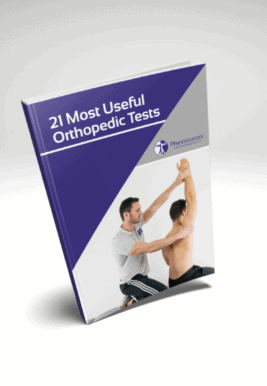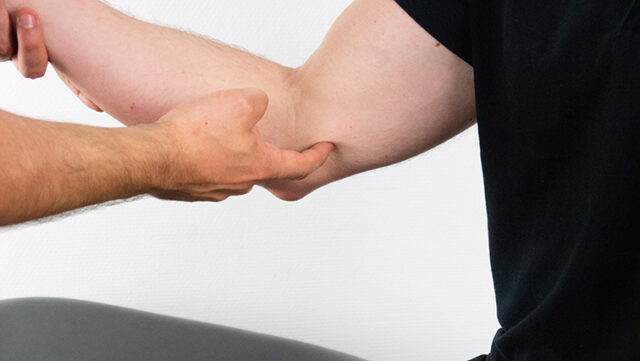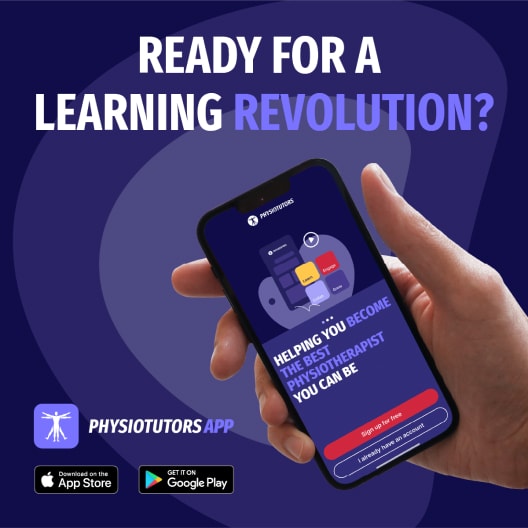Learn
Scratch Collapse Test | Cubital Tunnel Syndrome Assessment
Cubital tunnel syndrome is a peripheral entrapment neuropathy of the ulnar nerve at the elbow. It’s the second most common entrapment neuropathy of the upper limb and is commonly seen after trauma resulting in a fracture or dislocation at the elbow, arthritis, or repetitive strain.
Cheng et al. (2008) proposed a new clinical test to evaluate the patient with suspected ulnar nerve entrapment. Their study showed a sensitivity of 69% and specificity of 99% though the study is at a high risk of bias and the test has not undergone further validation which is why we give it a moderate clinical value at best.
To conduct the test, the patient is in standing or sitting position with the arms in the anatomical position, the elbows flexed to 90 degrees and the hands outstretched.
You will then apply an internal rotation force at the distal forearm and ask the patient to resist. Instruct the patient to only match the force applied by you and not try to push as hard as they can.
Then scratch or swipe with the fingertips over the ulnar nerve at the elbow and immediately repeat the first step of resisted bilateral external rotation.
The test is considered positive if you can observe a brief loss of the patient’s external rotation force. The authors believe that the scratch collapse test uses the phenomenon of the cutaneous silent period to briefly inhibit tonic shoulder external rotation as a response to a noxious stimulus of the skin overlying a chronically constricted nerve.
21 OF THE MOST USEFUL ORTHOPAEDIC TESTS IN CLINICAL PRACTICE

Other orthopedic tests to assess for cubital tunnel syndrome are:
- Tinel’s Sign at the Elbow
- Elbow Flexion Test/Flexion-Compression Test
- Pressure Provocation Test
- Shoulder Internal Rotation Test
References
References
Like what you’re learning?
BUY THE FULL PHYSIOTUTORS ASSESSMENT BOOK
- 600+ Pages e-Book
- Interactive Content (Direct Video Demonstration, PubMed articles)
- Statistical Values for all Special Tests from the latest research
- Available in 🇬🇧 🇩🇪 🇫🇷 🇪🇸 🇮🇹 🇵🇹 🇹🇷
- And much more!








